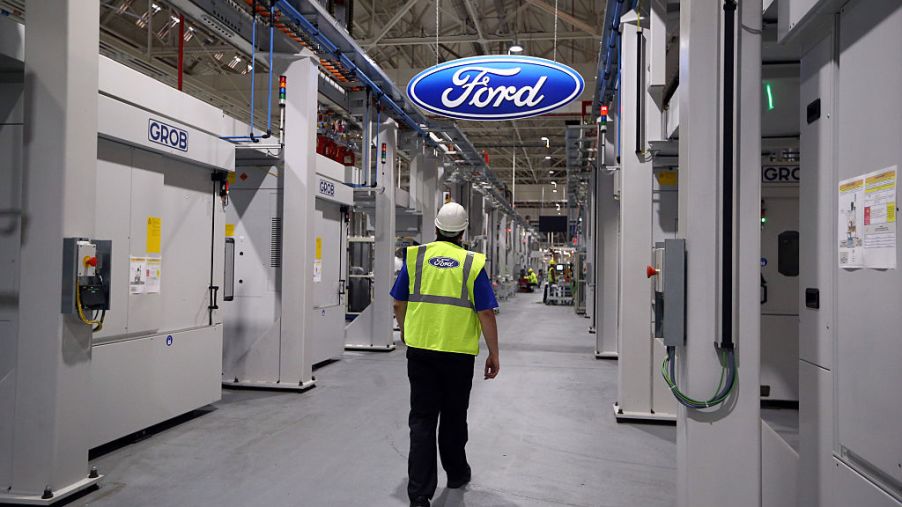
Ford’s Gamble on a Tech Start-up Has Seemingly Failed
Automaker Ford has been investing its substantial finances into a variety of companies in recent years. It is part of an attempt to remain at the forefront of automotive innovation.
But is all the investing really paying off for Ford? One investment may have the company second-guessing that gamble. After becoming a lead investor in a start-up company that’s currently in hot water, how will Ford decide to turn its investment strategy around?
Ford’s investment gone wrong
In early 2019, Jim Hackett left the Board at Ford to become the head of Ford Smart Mobility LLC, the new “mobility services” branch. Two months later, in May of 2019, the company bought lots of stock in a Silicon Valley tech start-up company.
Though many questioned the company’s motives, its recent investments seem to be part of the company’s future plans. According to Fortune, Ford claimed that “the investment is part of Ford’s expansion to be both an auto and a mobility company.” Shortly after, Hackett became CEO and began staking his future on the company’s mobility future.
Pivotal Software, a cloud software company, received a $182 million investment by Ford in May, leaving Ford as a lead investor. A public company, controlled by computer giant Dell, it’s recently been experiencing its own set of problems.
Between facing pressure from new open-source software from Google and two class-action lawsuits by investors, Pivotal Software’s stock has fallen more than 35% in the first half of 2019. Though the company showed initial promise, trading shares as high as $29.15, Ford Authority claims that a fall to an IPO of $15 goes against all expectations. Now falling short of the estimates from Ford’s investors, it’s clear evidence how volatile the world of start-up tech companies is.
Ford announced it has lost its entire investment amount in market value, but still owns shares at Pivotal Software worth $170 million. As a result of everything, Ford’s shares fell 7% just last week (including the Pivotal Software write-down). How will the failure with Pivotal Software play into Ford’s plans to become the mobility company of its own dreams?
Behind the investment motives
It’s still not entirely clear why the company initially invested in the cloud company, but it may have been in an attempt to streamline its software development. Ford’s new focus on mobility brings an idea of producing software within weeks, not months.
Attempting to flex its muscles as digital leaders in the automotive industry, Ford has been heavily investing in a variety of companies. Its losses with Pivotal Software, however, exemplify the complexity of investing.
According to Jalopnik, the automaker also invested in a shuttle service startup company called Chariot in 2016. In March of 2019, that $65 million investment was shut down as a failure.
But Ford is committed to investing in the redesign of the company, with an ongoing effort that will cost $11 billion over three to five years. According to Yahoo Finance, much of this is going to investments.
Just since 2016, Ford has become a lead investor of Velodyne LiDar, Argo AI, Desktop Metal, SAIPS, and most recently, Rivian Automotive. According to CrunchBase, the $500 million investment from Ford helped provide a total funding amount of $1.4 billion for Rivian Automotive. This tech company creates products and services to “advance the shift to sustainable mobility.”
But keeping up with competition has become more difficult in the automotive industry than ever before. Automakers have been creating and designing more advanced vehicles every day. In order to keep up, it must become the tech powerhouse it wishes to be. But will all of its investments pay off in the end?


